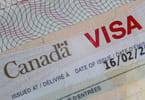Robert Evans climbed aboard a small US Airways Express jet in El Paso this past summer and found a very large man occupying half of his seat.
“This,” he told a flight attendant, “is not right.”
A telecommunications business owner from St. Petersburg and top-tier US Airways elite flier, Evans was outraged when she told him tough luck: the airline had no policy for dealing with oversized passengers. Fortunately for everyone involved, an elderly woman volunteered to swap seats with him.
“When you buy a ticket and are assigned a seat, that means the seat’s yours,” Evans says. ”Not half of it, all of it.”
You’ve no doubt heard of the injustice done to movie director Kevin Smith this weekend by Southwest Airlines. His tale of getting booted off an Oakland-to-Burbank flight Saturday for being “too fat to fly” zipped to 1.6 million Twitter followers, then cable celebrity shows.
Smith contends he fit between the two arm rests, legal under Southwest’s rules to fly in a single seat. “I’m fat,” he said on a podcast. “But am I as fat as John Candy yet? No, I wear it fairly well.”
Employees made a judgment call that he was too big and needed an additional seat, not an option on the full flight, said Linda Rutherford, a Southwest vice president, on the airline’s blog. The crew shouldn’t have tried to board him on standby then take him off the plane, she said. Southwest apologized and refunded his fare.
Lost in all the noise is the question Evans raises: What about the rights of the travelers squeezed by neighbors too big for their own seats?
By all accounts, the problem is getting worse. Coach seats remained the same width — 17 to 18 inches — while obesity rates grew. More than a third of Americans now are defined as obese by the Centers for Disease Control and Prevention. As airlines have shrunk their fleets, passengers are packed into planes even more tightly.
United Airlines last year said it received 700 complaints in 2008 from passengers angry that a larger passenger took up part of their seat. Southwest says its oversized passenger policy affects “far less” than half of one percent of its customers, or 127,000 last year.
Unlike many carriers that lack rules or keep them under wraps, Southwest posts a two-page Q&A about the policy its followed for 29 years on its Web site.
Large passengers must buy two seats. If there aren’t more passengers waiting to board the flight than seats on the plane, Southwest will refund the second seat and give the customer side-by-side seats. If the flight is sold out, the passenger can buy an extra seat on a less full flight.
“We could no longer ignore complaints from customers who traveled without full access to the seat purchased due to encroachment by a large seat mate,” says the Web site. “These customers had uncomfortable (and sometimes painful) travel experiences and it is our responsibility … to prevent this problem.”
No fan of all-coach Southwest, Evans would agree. He’s still irritated at US Airways — the headquarters, not local Tampa staff — for the response to his customer service complaint: a coupon for up to $150 toward a future flight. He ripped it up.






















